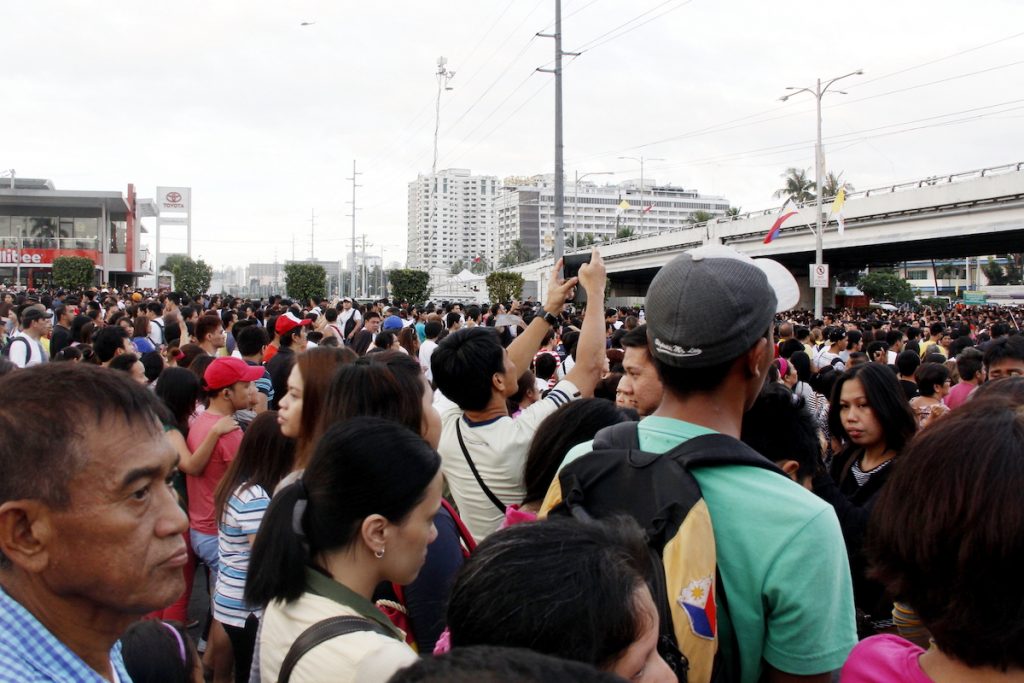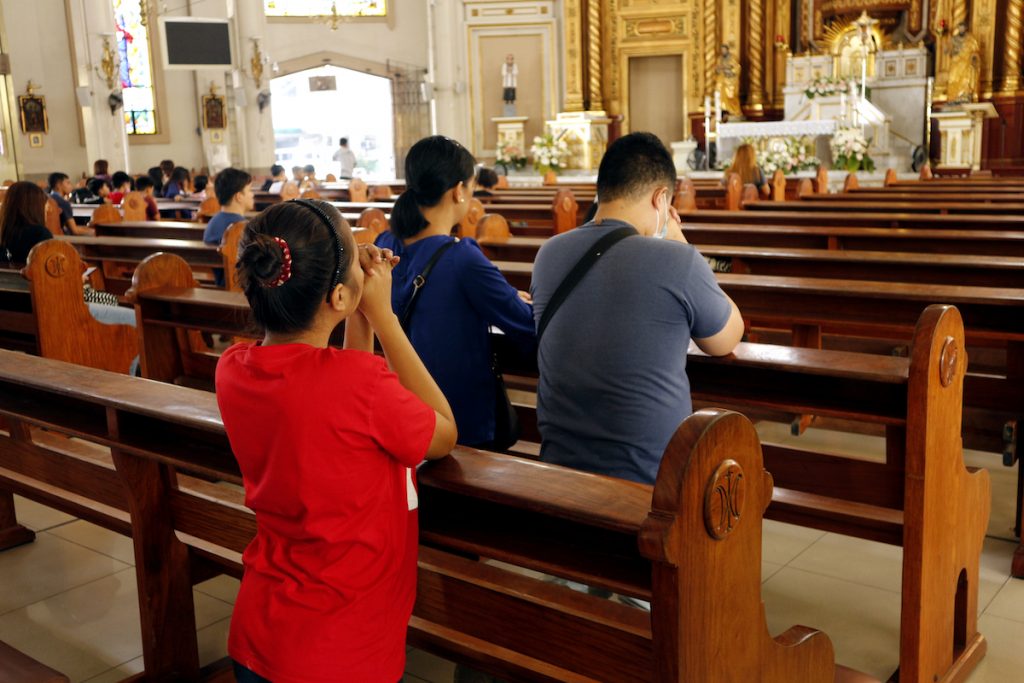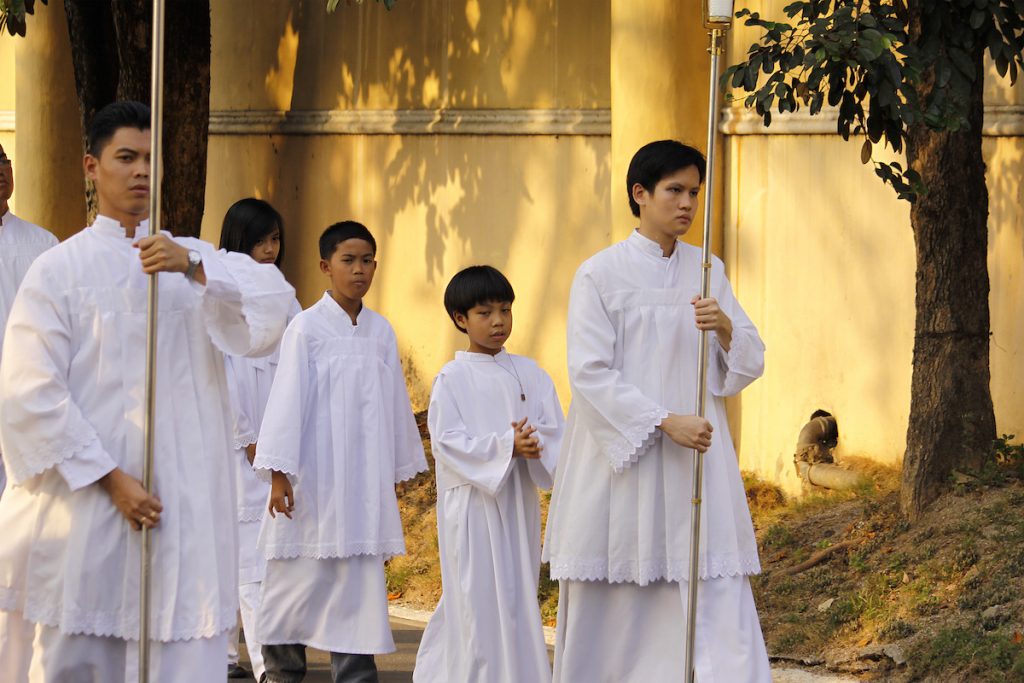When he was still the mayor of Davao City in Mindanao, but already gunning for the Philippine presidency in December 2015, Rodrigo Duterte dropped a bombshell during a campaign sortie.
He told the crowd that he was sexually abused by a Catholic priest when he was still a child studying at a Jesuit-run school.
It was his retort after the Catholic Church responded with shock and disgust at a previous statement in which he had cursed Pope Francis for causing a monstrous traffic in Manila during the church leader’s visit in January of that year.
Before this, revelations regarding the sexual abuse of altar boys had been few and far between, in part because of the stigma attached to it. If ever, the victims preferred to keep it to themselves or their immediate families, for fear of reprisal. But as they grew older, many found the courage to come out in the open and even pinpoint those who had done them wrong.
If no less than the president of the Philippines has now come forward to admit that he had suffered sexual abuse from a priest in his childhood, what’s to stop others from less privileged circumstances from admitting that they too had suffered the horrific crime and demand justice?
Pope Francis has been forthright in addressing the problem that has greatly eroded the credibility and moral authority of the Catholic Church.
In a “Letter to the People of God” dated Aug. 20, 2018, he said: “I acknowledge once more the suffering endured by many minors due to sexual abuse, the abuse of power and the abuse of conscience perpetrated by a significant number of clerics and consecrated persons.
“Crimes that inflict deep wounds of pain and powerlessness, primarily among the victims, but also in their family members and in the larger community of believers and nonbelievers alike,” the pope said.
The pontiff continued: “Looking back to the past, no effort to beg pardon and to seek to repair the harm done will ever be sufficient. Looking ahead to the future, no effort must be spared to create a culture able to prevent such situations from happening, but also to prevent the possibility of their being covered up and perpetuated.
“The pain of the victims and their families is also our pain, and so it is urgent that we once more reaffirm our commitment to ensure the protection of minors and of vulnerable adults.”


Further on, Pope Francis noted: “We must be committed to a culture of care that says ‘never again’ to every form of abuse. Without the active participation of all the Church’s members, everything being done to uproot the culture of abuse in our communities will not be successful in generating the necessary dynamics for sound and realistic change.
“It is essential that we, as a Church, be able to acknowledge and condemn, with sorrow and shame, the atrocities perpetrated by consecrated persons, clerics, and all those entrusted with the mission of watching over and caring for those most vulnerable,” he said.
Last December, Pope Francis abolished pontifical secrecy in cases of sexual violence and the abuse of minors committed by members of the clergy.
The Church can now investigate cases of violence and sexual acts committed under threat or abuse of authority; cases of the sexual abuse of minors or vulnerable persons; cases of child pornography; cases regarding the lack of reporting; and the cover-up of the abusers on the part of bishops and superiors general of religious institutes.
No doubt taking a cue from the Vatican, the Philippine Catholic Church’s social action arm is ramping up its own efforts to curb the sexual abuse of minors by priests in the country.


Father Edwin Gariguez, outgoing executive secretary of Caritas Philippines, otherwise known as the National Secretariat for Social Action, Justice and Peace, said they will conduct proactive “background checks” of all social action directors at the national and diocesan levels.
The goal, he emphasized, is to determine whether a priest has been involved in any abuse case, particularly of children.
“We are doing this to show that we do not tolerate cases like these. Thus, if there is need for each diocese to have training on this matter and the mechanism on how this will be done, we will create and provide it for the protection ministry,” said the priest.
Clerical abuse should not be happening within the confines of the Church, “but admit it or not, and though we rarely admit it, it is happening. Thus, we should have a mechanism on how cases like this should be reported and how to address this problem,” Father Gariguez added.
In July 2019, the Catholic Bishops’ Conference of the Philippines agreed to create a new office that will look into the cases of clerical abuse and augment efforts at the diocesan level.
We believe Caritas Philippines is on the right track in investigating cases of clergy sexual abuse in the Philippines.


After all, sexual abuse of minors leads to lifelong resentment against priests who use their power and influence to entice vulnerable minors and even adults to submit to sexual acts.
We cannot deny that cases of clergy sexual abuse have led many to renounce their faith and look elsewhere for spiritual guidance.
Hence, Pope Francis deserves credit for moving decisively in addressing the problem of clergy sexual abuse that has tarnished the image of the Catholic Church worldwide.
It is true, given the scope of the problem all over the world, that the Church has failed to protect children and vulnerable adults entrusted to its care. But solving the problem requires, first of all, recognition that it exists, as well as understanding that it causes physical, psychological, and spiritual damage to its victims, and even affects the lives of whole communities.
Now is as good a time as any for the Catholic Church to strive to regain its moral authority and give justice to all those who may have been victimized by wayward clergy.
Ernesto M. Hilario writes on political and social justice issues for various publications in the Philippines. The views and opinions expressed in this article are those of the author and do not necessarily reflect the official editorial position of LiCAS.news.


